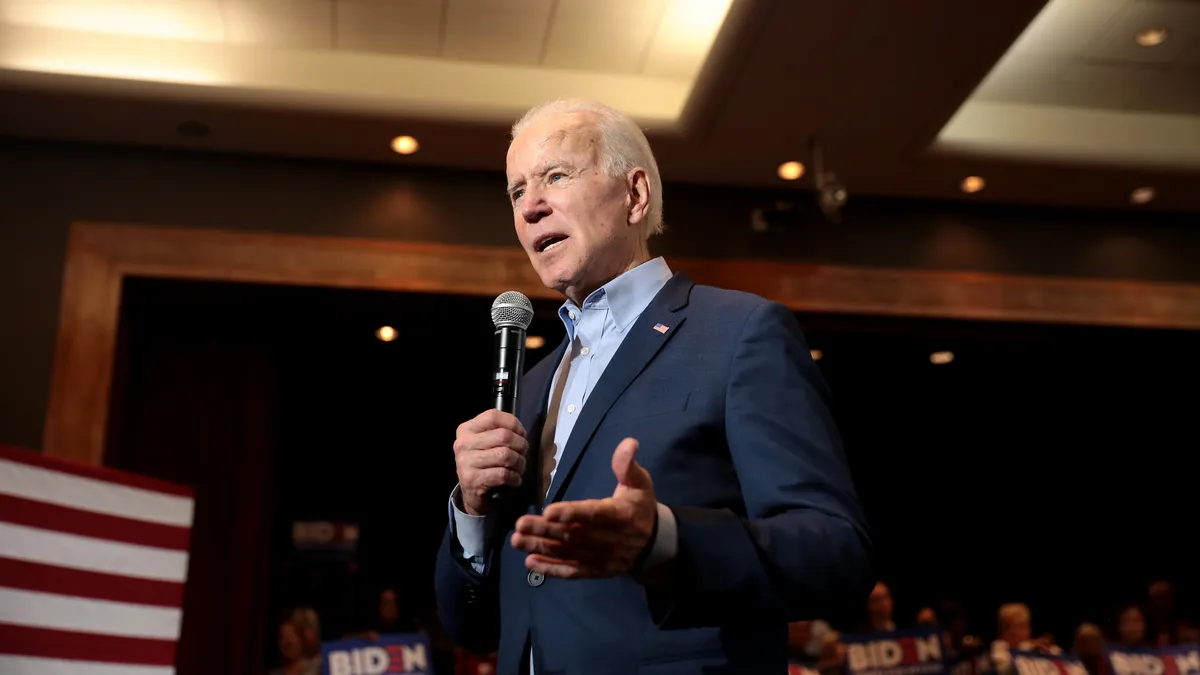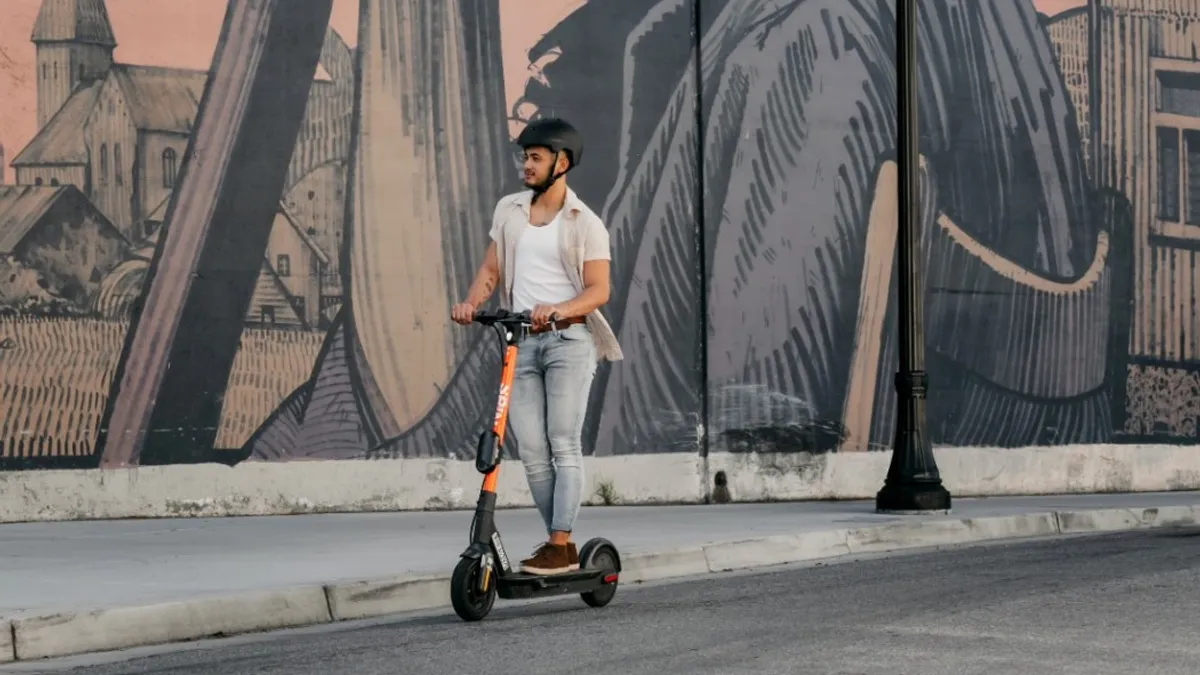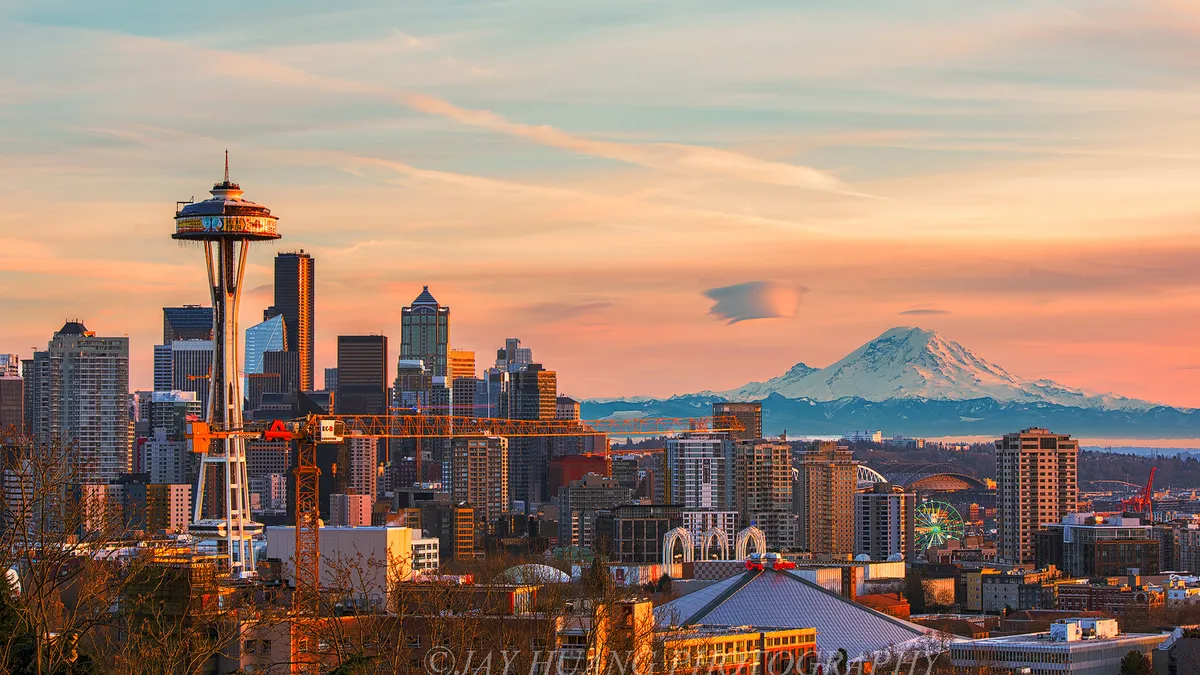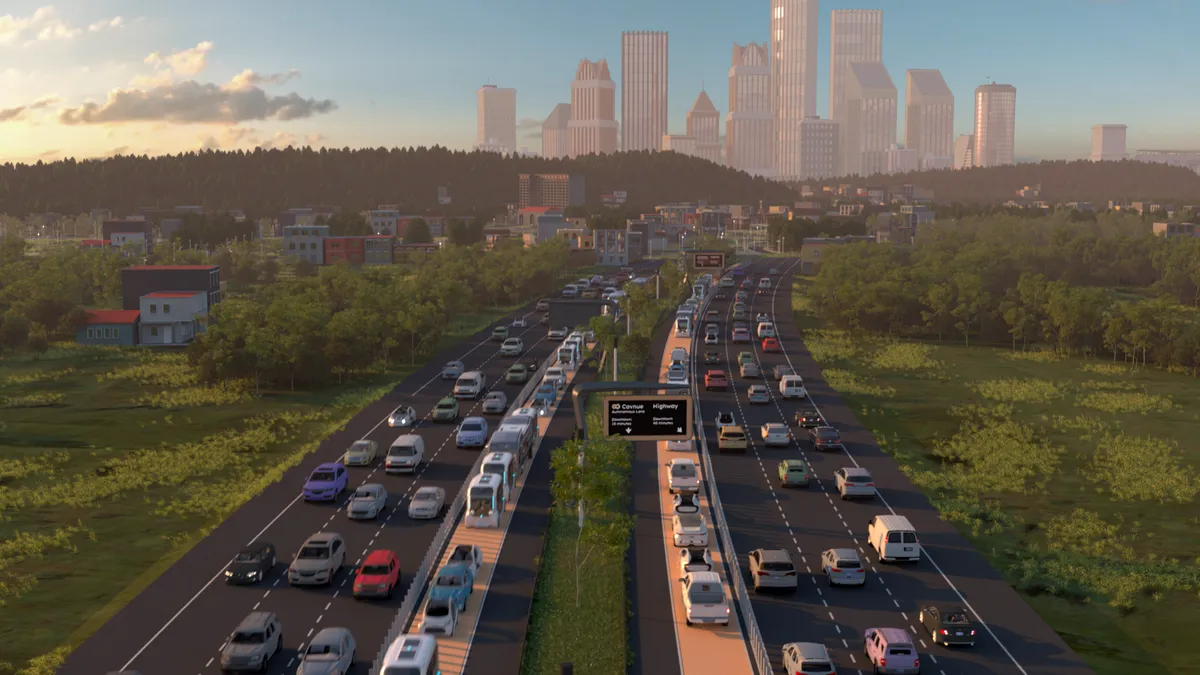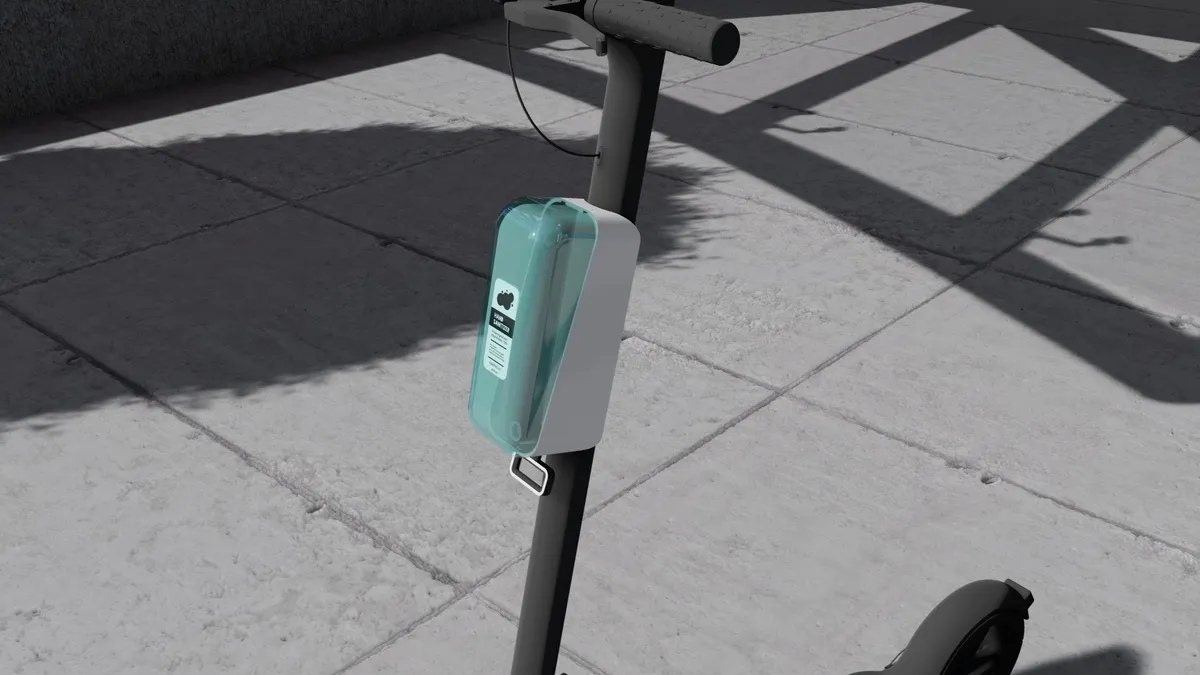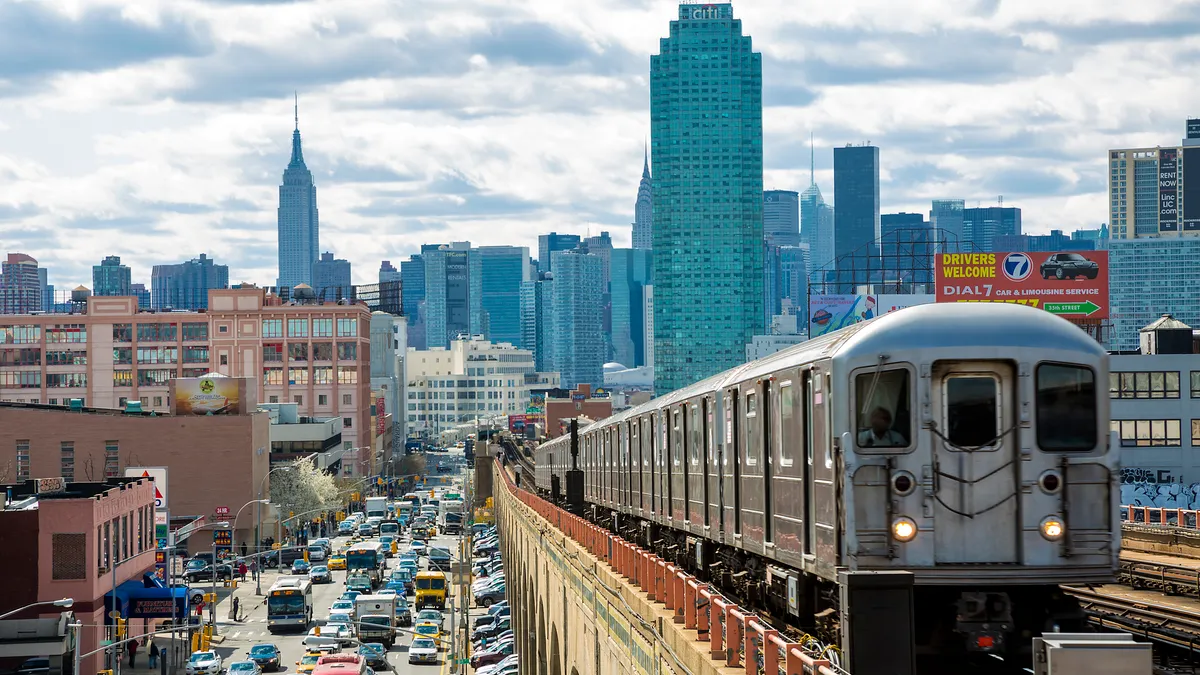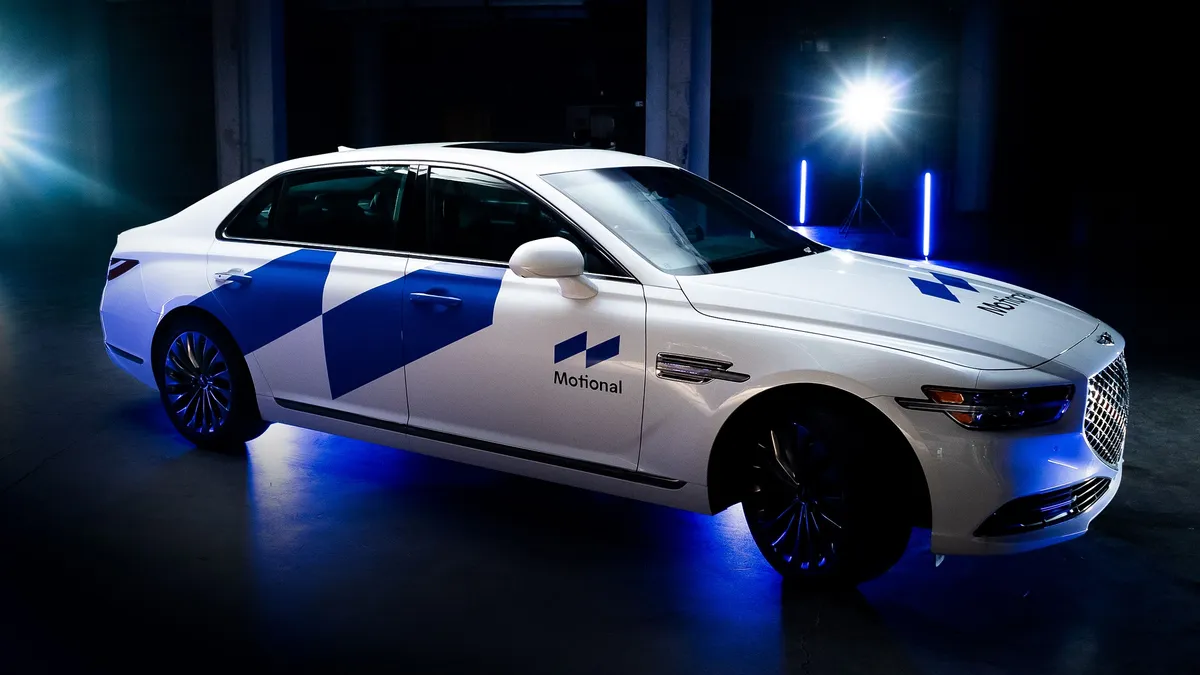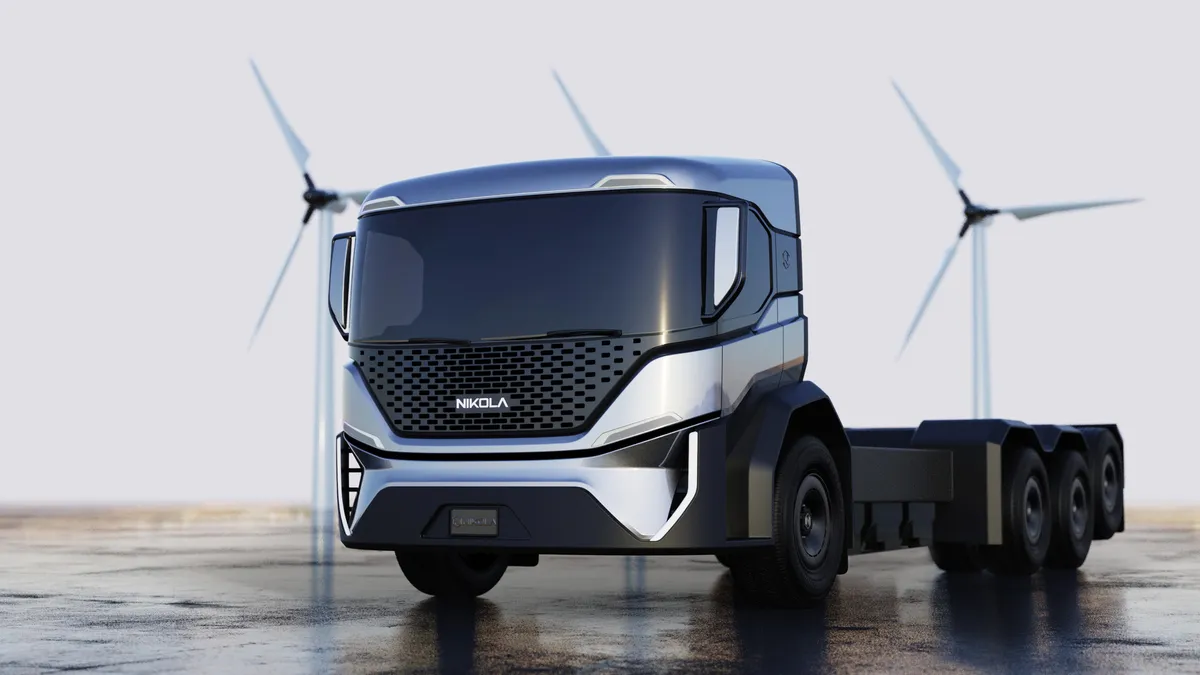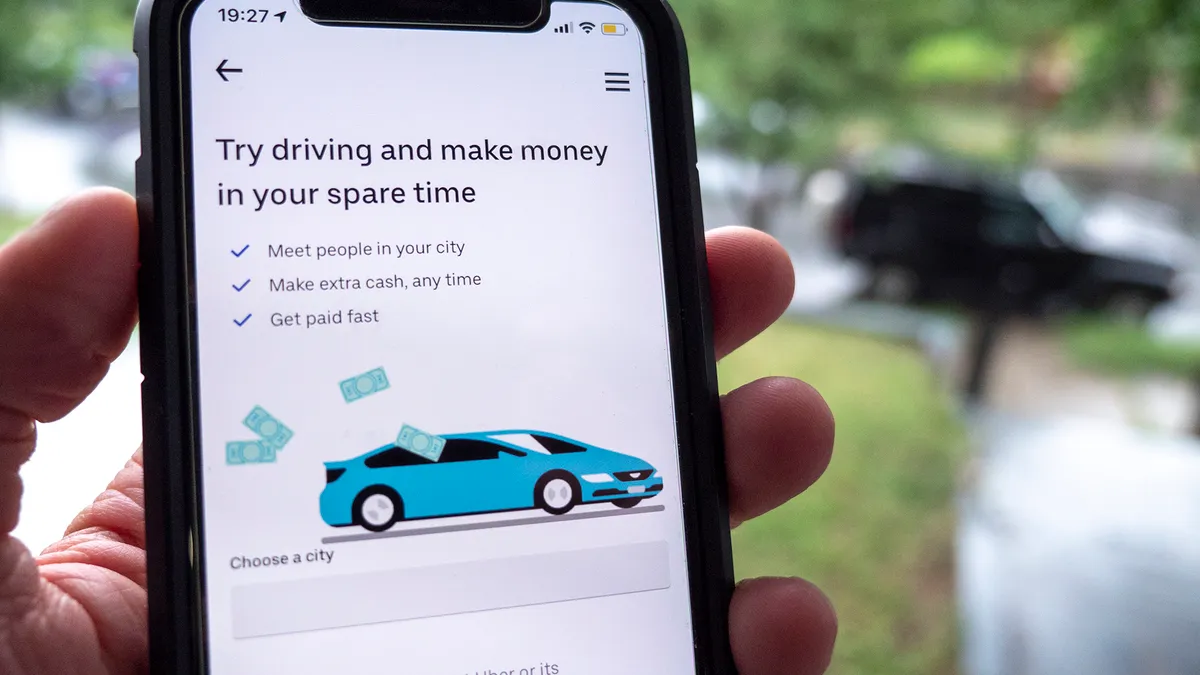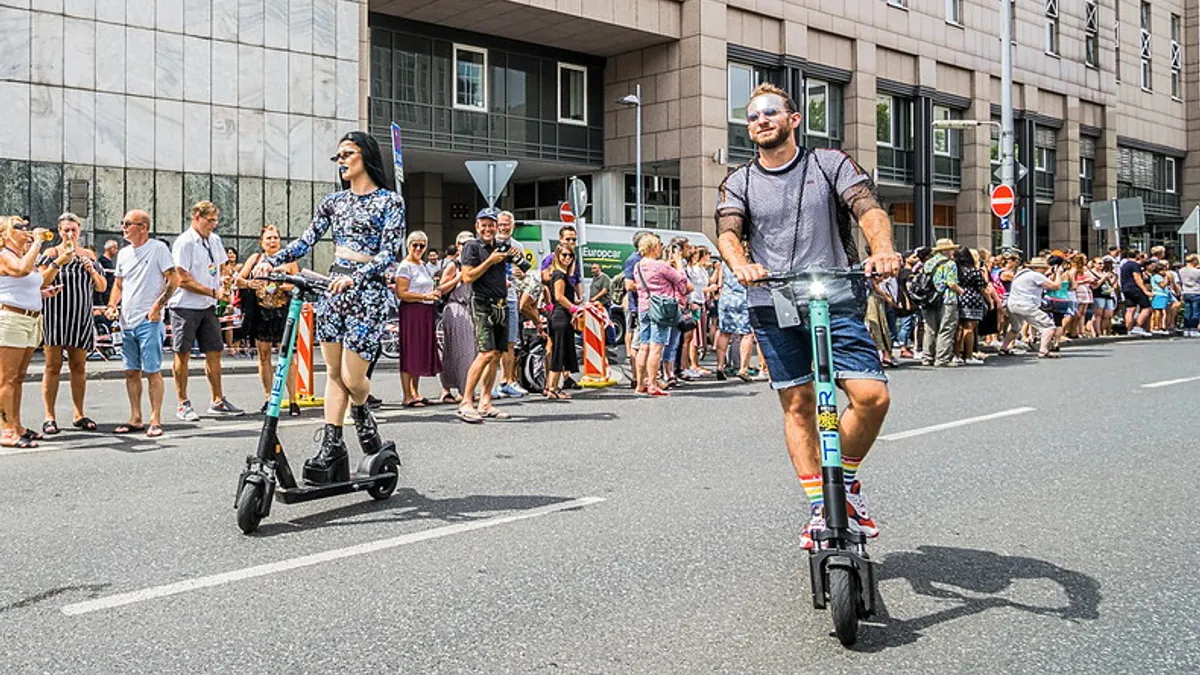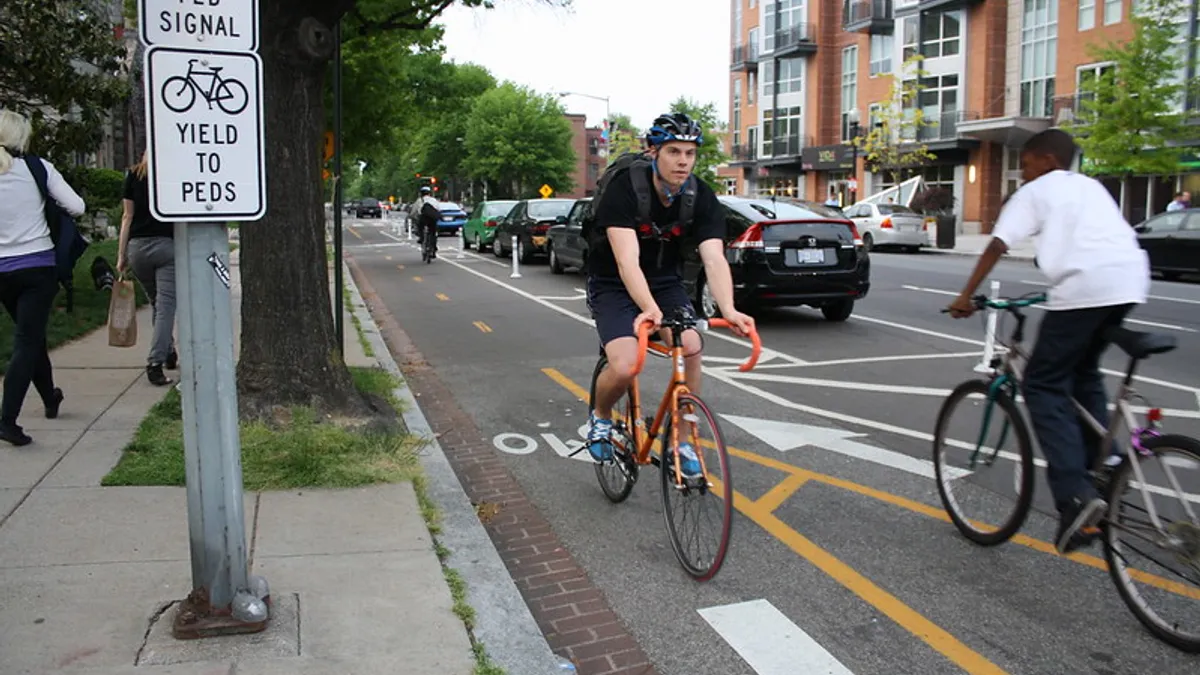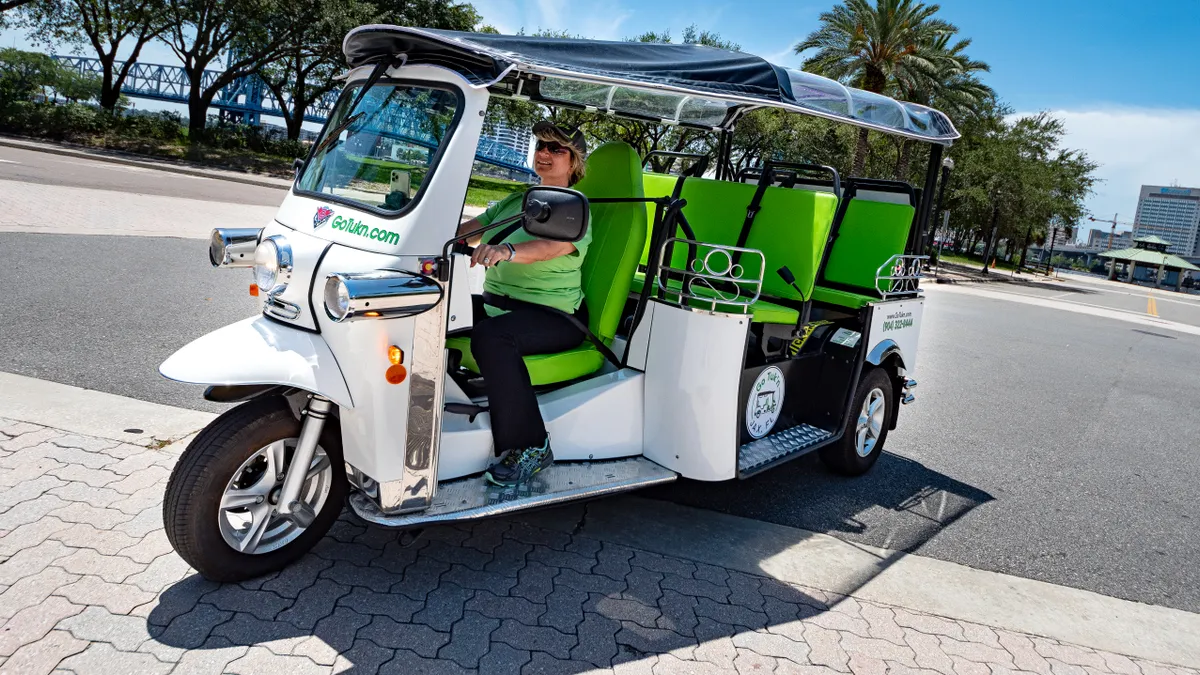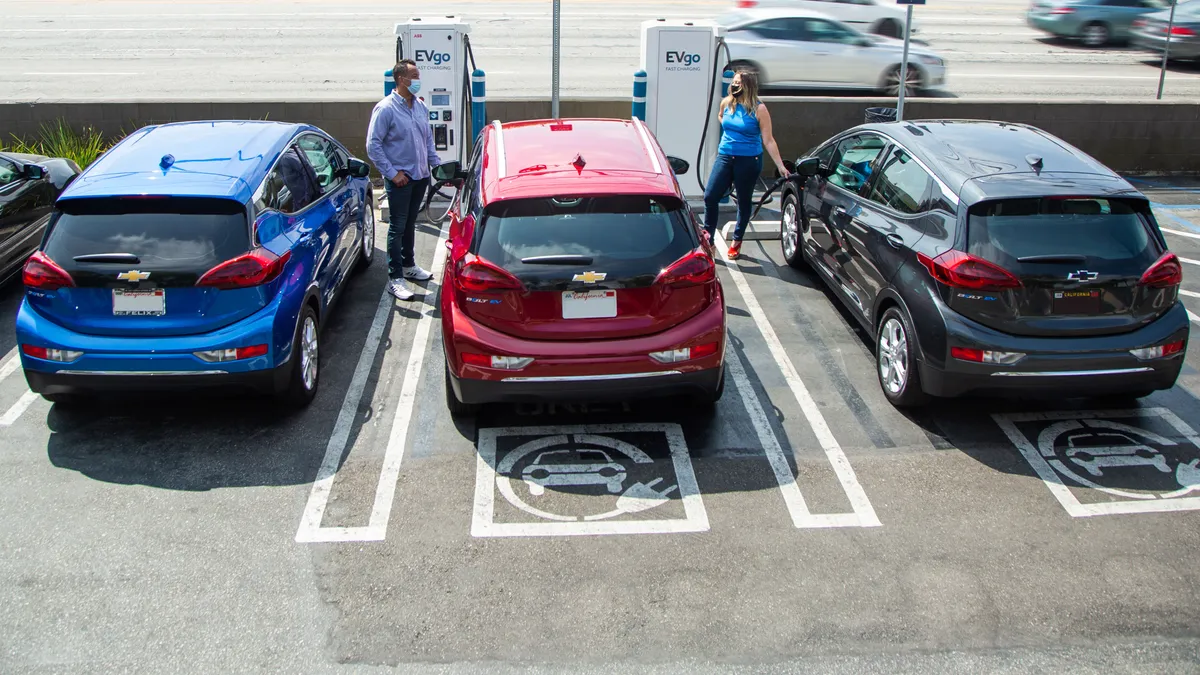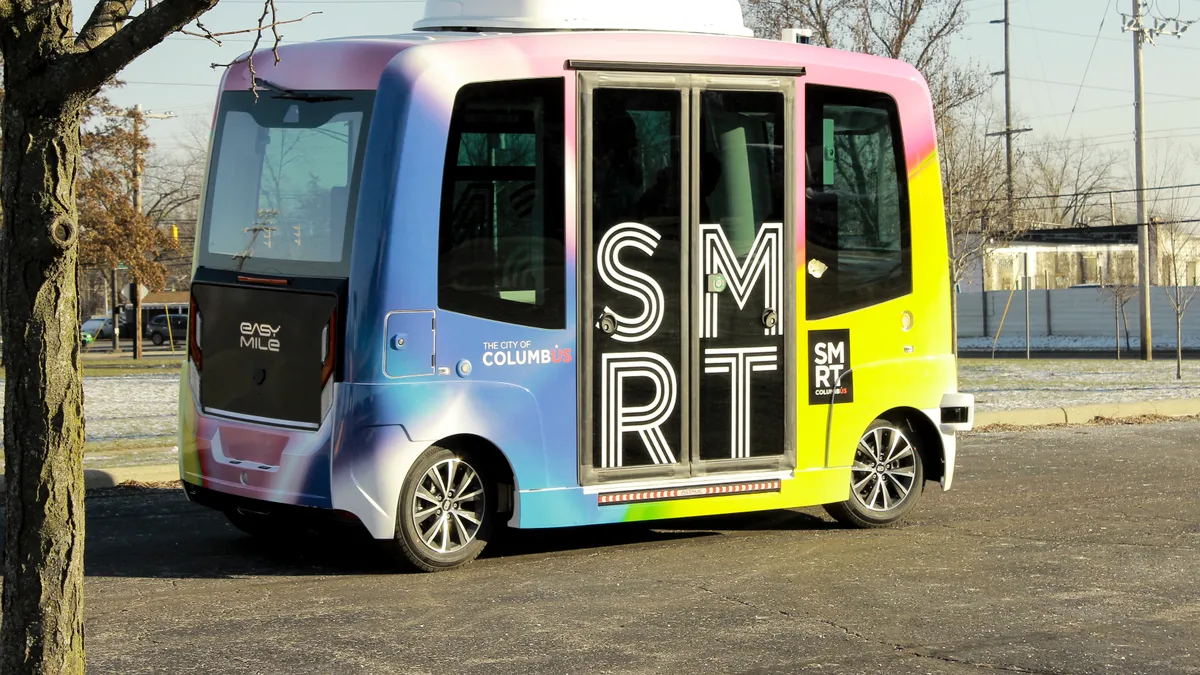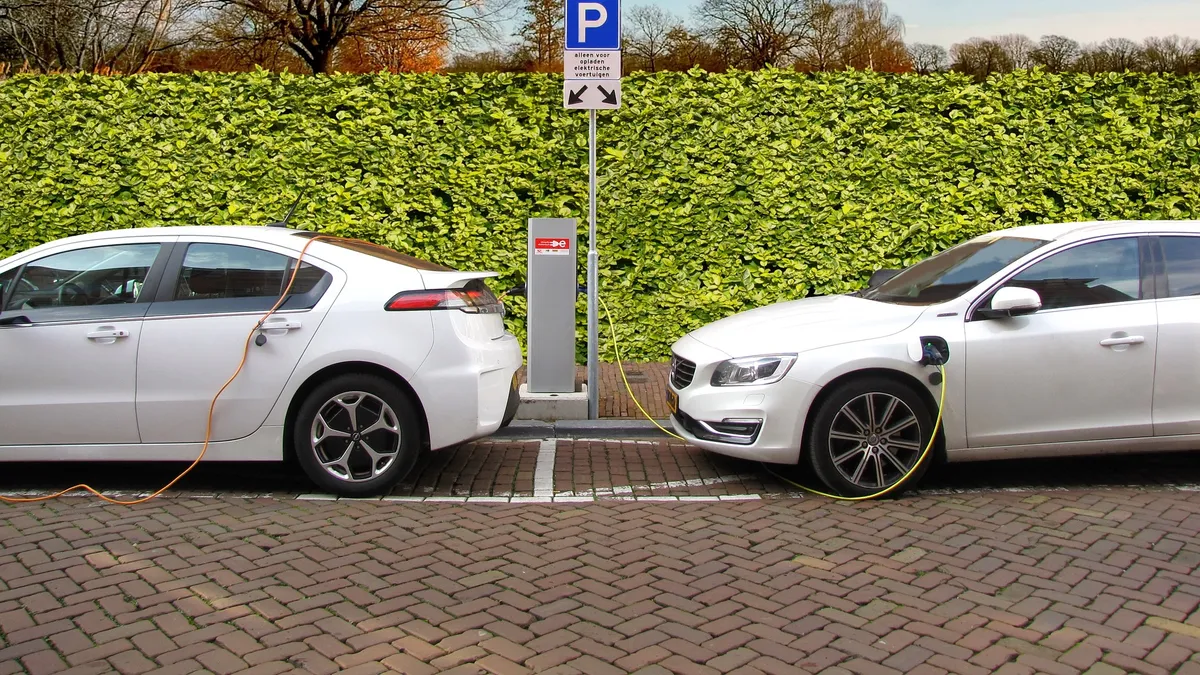Transportation: Page 59
-
Senate Democrats reveal climate plan to achieve net-zero carbon economy
The report calls on Congress to spend at least 2% of annual U.S. GDP on climate actions and require federal regulators to ensure publicly-traded companies disclose climate risks.
By Catherine Morehouse • Aug. 27, 2020 -
GHSA calls for unified leadership on micromobility rules, safety
Local governments should be given as much flexibility as possible to regulate the devices and provide infrastructure for their safe use, the Governors Highway Safety Association reports.
By Chris Teale • Aug. 27, 2020 -
Uber-led road safety coalition looks to combat 'concerning' driving trends
The ride-hailing giant, in partnership with the National Safety Council, Governors Highway Safety Association and others, hopes to tackle speeds, DUI and distracted driving as people resume traveling.
By Chris Teale • Aug. 26, 2020 -
Delaware transit agency to power electric buses with solar array
The Delaware Transit Corporation will install the 60,000-square-foot array at its facility in Dover, where it will power the facility and charge electric buses.
By Katie Pyzyk • Aug. 26, 2020 -
Uber, Lyft to stay in CA, sparing already limited mobility landscape
The companies will continue operating in the state after threatening to suspend service, nearly impacting more than 158,000 drivers and the riders who rely on ride-hailing due to curtailed transit.
By Chris Teale • Aug. 21, 2020 -
Seattle approves minimum wage plan for ride-hailing drivers
It is the second city in the nation to mandate a minimum wage for drivers, requiring compensation of at least $16.39 an hour beginning on Jan. 1.
By Chris Teale • Updated Sept. 30, 2020 -
Michigan to build first-in-nation AV corridor from Detroit to Ann Arbor
The 40-mile corridor for driverless and connected vehicle testing and deployment will be led by a subsidiary of Sidewalk Infrastructure Partners in partnership with the state.
By Chris Teale • Aug. 14, 2020 -
Young entrepreneurs dream up IoT-powered scooter sanitization system
The patent-pending device from KirbyPod may offer a solution to the pandemic-related health risks currently plaguing shared mobility.
By Kristin Musulin • Aug. 13, 2020 -
Opinion
The business case for sustainable urban transport
With such a strong business case and demonstrable ROI to speak for investments in sustainable transport, governments have a moral obligation to act.
By Meagan Crawford • Aug. 13, 2020 -
Cities can't rely on autonomy to solve pedestrian safety: LADOT head
In an AV webinar hosted by Axios, Seleta Reynolds said cities must apply digital transformation to their infrastructure to complement the goals of the autonomous driving sector.
By Kristin Musulin • Aug. 12, 2020 -
Nevada permits Motional to test AVs without a driver
The "driverless milestone" will be followed by a "rigorous, self-imposed testing and assessment period" in the coming months, said Motional CEO Karl Iagnemma.
By Kristin Musulin • Updated Nov. 18, 2020 -
Deep Dive
Can health and safety efforts save ride-hailing post-pandemic?
Companies are adopting new ways to bolster riders' confidence, but the industry may struggle to recover if health concerns linger or labor issues expand.
By Chris Teale • Aug. 12, 2020 -
Republic Services and Nikola cancel major electric truck order
Plans to develop at least 2,500 new electric refuse vehicles, the waste industry's largest order by far, are being reversed due to "longer than expected development time, and unexpected costs."
By Cole Rosengren • Updated Dec. 23, 2020 -
Lyft, Uber ordered to reclassify California drivers, putting all eyes on Prop 22
The ruling puts added pressure on a state ballot measure that would classify app-based drivers as independent contractors.
By Kate Tornone , Kristin Musulin • Updated Oct. 23, 2020 -
Uber focuses on delivery as pandemic erodes ride business
Uber Connect, a consumer-to-consumer delivery service, puts the tech company in competition with parcel carriers and USPS, though not on price.
By Emma Cosgrove • Aug. 10, 2020 -
NUMO tool evaluates micromobility data against policy goals
More than 50 partners convened to develop a recourse site that details appropriate ways to implement data-sharing requirements and use the data.
By Kristin Musulin • Aug. 10, 2020 -
Opinion
The complimentary benefits of active commuting during coronavirus
A shift toward cycling can help city dwellers avoid crowded transportation while fostering health benefits that could alleviate the intensity of COVID-19.
By Albert Still • Aug. 10, 2020 -
Deep Dive
Tuk tuks could shift from novelty to necessity in the COVID era
Rickshaws and pedicabs offer a key advantage over most common forms of city transportation: They operate in the open-air at a time when air flow is more important than ever.
By Jason Plautz • Aug. 4, 2020 -
New Hampshire law signals 'stepping-stone' to flying cars
Gov. Chris Sununu signed legislation late last month regulating inspections, registration and fees for 'roadable vehicles,' which would operate on state roads and in the air.
By Chris Teale • Aug. 4, 2020 -
GM, EVgo to triple fast charging network
The companies announced plans to add more than 2,700 new fast chargers in "highly visible areas" across 40 undisclosed metropolises.
By Chris Teale • Aug. 3, 2020 -
House passes ride-hailing safety bill Sami's Law
The bill requires companies to implement a digital driver verification system, and prohibits the third-party sale of identifying vehicle signs.
By Chris Teale • July 31, 2020 -
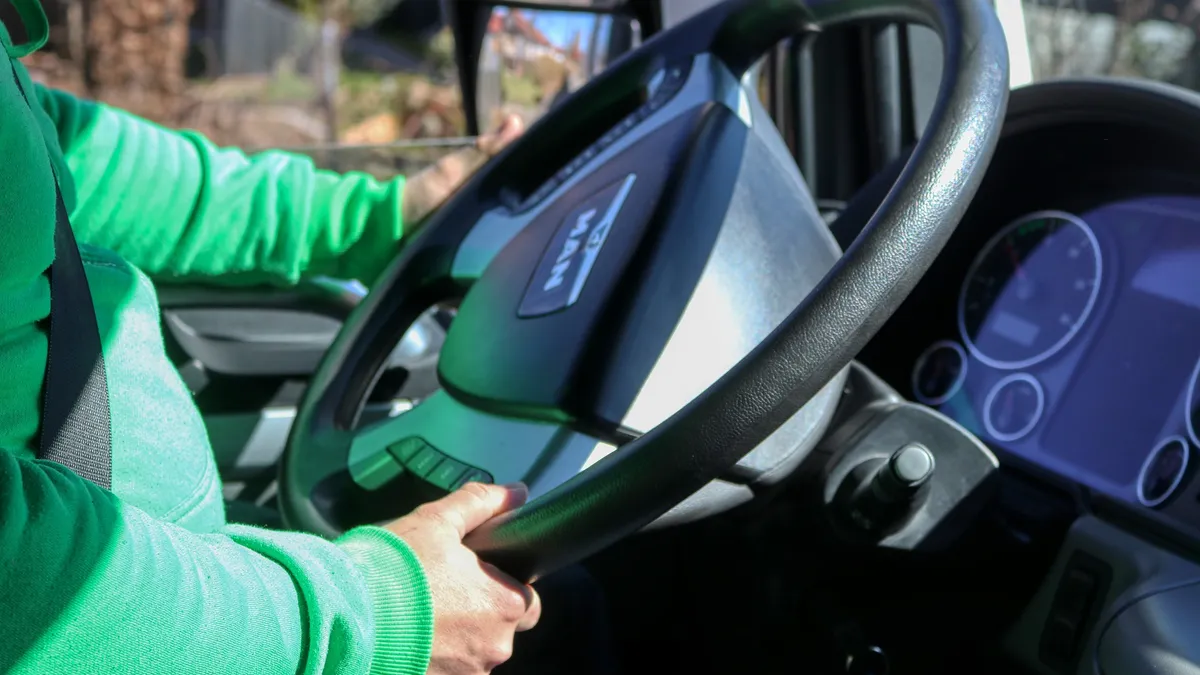
 Retrieved from Pixabay.
Retrieved from Pixabay. Column
ColumnRoads are becoming less safe. How can fleets reaffirm safety culture?
Safety experts have revealed alarming data points during the pandemic. While mileage is going down, fatality rates and distracted driving are on the rise.
By Shefali Kapadia • July 31, 2020 -
Columbus, OH kicks off 3 mobility pilots
The city unveiled Smart Mobility Hubs, a connected vehicle tech trial and the redeployment of an autonomous shuttle, all as part of the Smart Columbus initiative.
By Chris Teale • July 30, 2020 -
EVs can be a grid asset if user experience is prioritized: SEPA
Utilities can use electric vehicles to more efficiently manage distribution grids, but experts on a Smart Electric Power Alliance panel Tuesday warned the focus must remain on the customer experience.
By Robert Walton • July 30, 2020 -
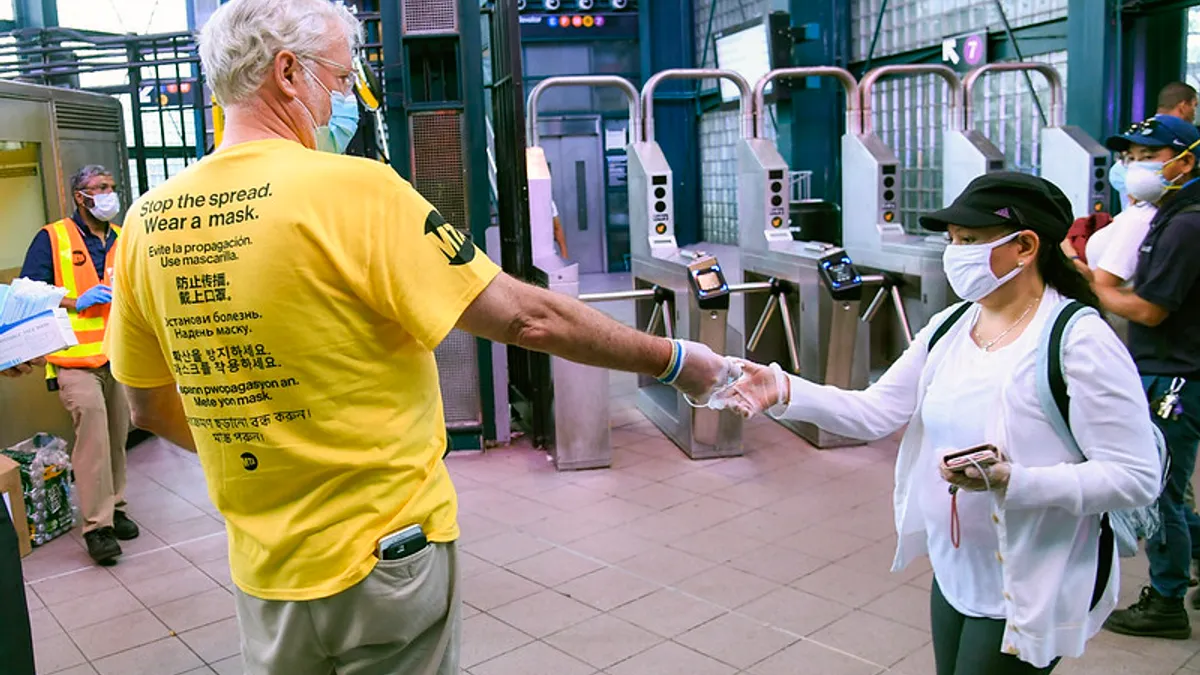
 Hermann, Marc A.. (2020). "Metropolitan Transportation Authority of the State of New YorkFollow MTA Officials Join “Mask Force” Distributing Masks Across Subway and Bus System" [Photograph]. Retrieved from Flickr.
Hermann, Marc A.. (2020). "Metropolitan Transportation Authority of the State of New YorkFollow MTA Officials Join “Mask Force” Distributing Masks Across Subway and Bus System" [Photograph]. Retrieved from Flickr.
APTA calls on Congress to provide $32B in public transit aid
The request, which follows the rollout of the Senate Republican's new coronavirus relief proposal, come as transit agencies prepare for potentially "catastrophic" decisions in lieu of funding.
By Cailin Crowe • July 29, 2020

